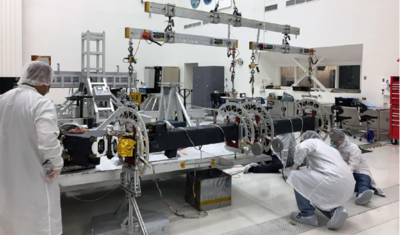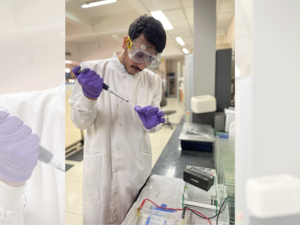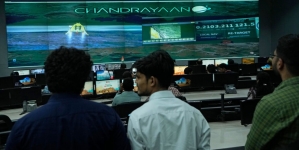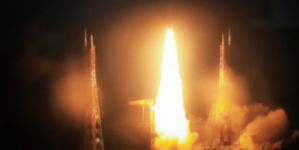-
WASHINGTON: India Now Second-Largest Source Country For New Citizens In US- Report - 17 hours ago
-
LONDON: Indian-Origin Teen In UK Gets “Life-Changing” Cancer Treatment - April 25, 2024
-
SILICON VALLEY: All About Pavan Davuluri, New Head Of Microsoft Windows - April 25, 2024
-
LONDON: UK’s India Gate To Commemorate Role Of Indian Soldiers From World Wars - April 24, 2024
-
HARARE: Shri Bramha Kumar appointed as the next Ambassador of India to the Republic of Zimbabwe - April 23, 2024
-
LONDON: Indian-Origin Principal Wins UK Legal Challenge Over School Prayer Ban - April 23, 2024
-
TORONTO: Indian-Origin Doctor Needs ₹ 2 Crore For Legal Fees. Elon Musk Responds - April 22, 2024
-
KINSHASA: India-Democratic Republic of Congo Foreign Office Consultations - April 21, 2024
-
LONDON: UK Court Allows Sale Of Nirav Modi’s Luxury London Apartment - April 21, 2024
-
TEHRAN: Travel advisory for Iran and Israel - April 20, 2024
BENGALURU: US looks to include Indian firms in NASA lunar project; NISAR in 2024, Isro astronaut may visit NASA Centre
BENGALURU: The White House, in a fresh statement issued on Indo-US strategic partnership said the countries would strengthen co-operation on human spaceflight, including establishing exchanges that will include advanced training for an Isro astronaut at NASA Johnson Space Center.
Another key aspect identified was innovative approaches for the commercial sectors of the two countries to collaborate, especially with respect to activities related to NASA’s commercial lunar payload services (CLPS) project.
“Within the next year, NASA, with Isro, will convene US CLPS companies and Indian aerospace companies to advance this initiative,” the statement read.
It added that the two countries would initiate new STEM talent exchanges by expanding the professional engineer and scientist exchange programme (PESEP) to include space science, Earth science, and human spaceflight and extending a standing invitation to Isro to participate in NASA’s biennial international programme management course.
There will be strengthening of bilateral commercial space partnership, including through a new US department of commerce and Indian Department of Space-led initiative under the civil space joint (Indo-US CSJ) working group.
“This initiative will foster commercial space engagement and enable growth and partnerships between US and Indian commercial space sectors,” the statement read, welcoming S Somanath’s (Isro chairman) visit to the US. While Somanath was in the US as of February 1, NASA administrator is scheduled to visit India later in 2023.
The countries will also expand the agenda of the Indo-US CSJ working group to include planetary defence.
The announcement comes in the backdrop of President Biden and PM Narendra Modi announcing the US-India initiative on Critical and Emerging Technology (iCET) in May 2022 to elevate and expand strategic technology partnership and defence industrial co-operation between governments, businesses, and academia.
“The US and India affirm that the ways in which technology is designed, developed, governed, and used should be shaped by our shared democratic values and respect for universal human rights. We are committed to fostering an open, accessible, and secure technology ecosystem, based on mutual trust and confidence, that will reinforce our democratic values and democratic institutions,” the White House said.
NISAR In 2024
In a separate statement, the US State Department, said officials from US and India gathered on January 30-31 for the eighth meeting of the Indo-US CSJ working group (CSJWG) co-chaired by principal deputy assistant secretary Jennifer R Littlejohn and the NASA associate administrator for international and interagency relations Karen Feldstein, Isro scientific secretary Shantanu Bhatawdekar.
The group discussions covered collaboration in Earth and space science as well as human space exploration, global navigation satellite systems, spaceflight safety and space situational awareness, and policies for commercial space. Participants also considered implementation of guidelines and best practices developed by the United Nations Committee on the Peaceful Use of Outer Space (COPUOS) to ensure the long-term sustainability of outer space activities.
“The NASA-ISRO Synthetic Aperture Radar (NISAR) mission, planned to launch in 2024, is expected to systematically map Earth, using two different radar frequencies to monitor resources such as water, forests and agriculture. The mission will provide important Earth science data related to ecosystems, Earth’s surface, natural hazards, sea level rise and the cryosphere,” It read.
























